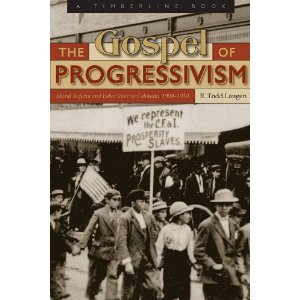By Mike Rosso
February 2011 was a tough month for dictators – and journalists.
While covering the uprisings in Northern Africa, many journalists were abducted, arrested, beaten and in some cases, lost their lives.
CNN’s Anderson Cooper was roughed up on the Egyptian streets by Hosni Mubarek’s thugs. Worse was the vicious assault on Lara Logan, the veteran correspondent for CBS News. In an age when the entire field of journalism is under attack, is it any wonder that one of the first things that occurred during the recent uprisings was the shutting down of the internet and the intimidation of reporters?
It was former Washington Post reporters Bob Woodward and Carl Bernstein, whose heroic efforts to shine light on the misdeeds of a U.S. president, ultimately leading to his resignation, who inspired me to choose a major in college that was pretty much guaranteed to keep me in the lower-income bracket of society for my professional career.
I began my studies in Mass Communications in the mid-1970s convinced I was going to have a career routing out corruption and serving the public good. But something happened along the way. Maybe it began with the introduction of the first national newspaper, USA Today. Suddenly the news started becoming more pre-packaged, more sensationalized, more personality-driven. Regional newspapers started feeling the heat and began shrinking their budgets for investigative reporting in lieu of entertainment, style, travel and gossip columnists.
Then, along came the 24-hour cable television news programming with its false sense of urgency and desperate need to fill all that airtime – with what? Celebrities? Gossip? O.J. Simpson and that infamous low-speed chase in the white Ford Bronco?
News anchors were suddenly being hired for their hair color and anatomy rather than their abilities as journalists. Ratings, baby! That’s the name of the game.
Meanwhile, newspapers started losing advertisers and subscribers to the “new media” and cuts were made not at the entertainment or sports desks, but to the investigative staffs. Investigative journalism takes work; time, research, patience, money – shoe leather. Stalking celebrities with a camera does not.
It seemed that things could not get much worse for the profession of journalism, but they did. Enter a wealthy Australian businessman, Rupert Murdoch who had an idea. Why not launch a cable news organization with the sole purpose of promoting an ideology? Better yet, let’s get really Orwellian and use the tagline “Fair and balanced.” That provides at least the appearance of objectivity. Coincidentally all this seemed to be coordinated with an assault on mainstream journalists, especially those deemed to be liberal (ie., Dan Rather). In fact, if the meme The Liberal Media gets repeated often enough, won’t it become a reality? (Comedian Stephen Colbert once famously stated at a press dinner in front of George W. Bush, “Reality has a well-known liberal bias.”)
And then there is the false equivalency which runs rampant with all that chatter. All one needs to do is watch Rachel Maddow and Bill O’Reilly back-to-back to recognize that there is a huge difference in the manner in which these two TV personalities conduct themselves.
Enter the internet, the citizen journalist, blogs, tweets, social networking, with the potential to level the playing field and give everyone a voice. The problem though, is that so many voices tend to cancel each other out. But is was the internet, and Twitter, that allowed so many young Arabs to coordinate their protests, taking authorities by surprise and prompting the shutdown of internet service.
I do though, hold out hope for the field of journalism; names like Matt Taibbi, Joe Conason, Christiane Amanpour, Ezra Klein, Glenn Greewald, Eric Alterman and Amy Goodman (who will be giving a talk in Salida on March 5). They are managing to sift through all the noise and dirt and trying to inform us of the truth, against all the odds and the corporate entities who’d rather they just shut up.




